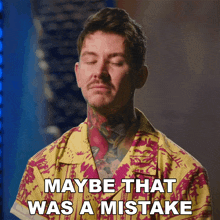Tman44
God Father of Soul
- Joined
- Nov 23, 2012
- Messages
- 2,179
- Likes
- 8,273
Today we are all talking about UT and the Tennessee and Virginia Attorneys General suit against the NCAA. It seems that there are many people on the message board that don't have an understanding of how we got to this point. I will lay out a brief timeline of NIL, I will also link the entire timeline, I hope this helps.
Secondly, the Attorneys General's suit is not about the Iamaleava investigation. The lawsuit refers to the NCAA violating the Sherman Anti-Trust act by not allowing athletes to fully enjoy their NIL rights. The suit claims the NCAA should have no regulation whatsoever on an individuals right to earn, in this case an NIL agreement. I hope this helps explain how we found ourselves in this position today.
 www.fosterswift.com
www.fosterswift.com

 www.ncaa.org
www.ncaa.org
- 2009 – Former UCLA basketball standout Ed O’Bannon was a plaintiff in a class action against the NCAA. O’Bannon and the other plaintiffs claimed an EA Sports video basketball game used their likenesses without consent or compensation.
- 2019 – California became the first state to pass NIL legislation in the “Fair Pay to Play Act” which prohibited the NCAA or member schools from punishing student-athletes who earn NIL compensation. The new measure was set for enactment in 2023.
- 2020 – Colorado, Florida, Nebraska, New Jersey and several other states pass laws permitting college student athletes to monetize their NIL. These new regulations are scheduled for enactment in 2022 and 2023.
- 2020 – The National Association of Intercollegiate Athletics (NAIA) passed regulations allowing NIL compensation for its student athletes. The NAIA regulates collegiate athletics at 252 member institutions who field 77,000 student athletes in 27 sports.
- 2021 – In NCAA vs. Alston, the U.S. Supreme Court rejected an NCAA appeal of its antitrust lawsuit, finalizing the lower court decision that the NCAA is not exempt from antitrust regulations. This ruling opened the floodgates for additional academic-related compensation and led to the NCAA’s ultimate decision to quickly adopt an Interim NIL Policy that allowed, for the first time, student-athletes to benefit financially from their name, image, and likeness without fear of NCAA penalty.
- 2022 – The NCAA Board of Directors issued NIL guidance to member schools which reinforced the prohibition of any recruiting incentives offered to student-athletes linked to potential NIL arrangements.
Secondly, the Attorneys General's suit is not about the Iamaleava investigation. The lawsuit refers to the NCAA violating the Sherman Anti-Trust act by not allowing athletes to fully enjoy their NIL rights. The suit claims the NCAA should have no regulation whatsoever on an individuals right to earn, in this case an NIL agreement. I hope this helps explain how we found ourselves in this position today.
NIL Timeline: The Events That Transformed College Sports
What follows is a timeline of Name Image Likeness (NIL) cases that transformed the face of college sports.

DI board approves clarifications for interim NIL policy - NCAA.org
The Division I Board of Directors has issued updated guidance to member schools about the interim name, image and likeness policy.
 www.ncaa.org
www.ncaa.org
Last edited:



